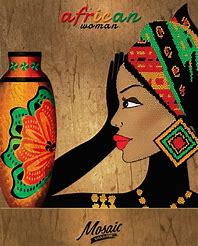16 'common' herbal supplements found to be associated with 'herb-induced liver injury'
















16 'common' herbal supplements found to be associated with 'herb-induced liver injury'
The market for herbal supplements is in rude health. However, there are growing concerns related to the safety and toxicities of these medicines. "Despite popular belief that the consumption of natural products is harmless, herbs might cause injury to various organs, particularly to the liver, which is responsible for their metabolism in the form of herb-induced liver injury (HILI)," researchers wrote in a study published last year.
They sought to identify herbal products associated with HILI and describe the type of lesion associated with each product.
HILI describes an adverse reaction to herbal medicines.
Searches were run and studies were retrieved from the electronic databases Scopus, Web of Science, MEDLINE, BIREME, LILACS, Cochrane Library for Systematic Reviews, SciELO, Embase, and Opengray.eu.
In the final analysis, 446 references were included, with a total of 936 cases reported.
The researchers found 79 types of herbs or herbal compounds related to HILI.
The "most common" supplements linked to HILI in the literature were:
- He-Shou-Wu - Green tea extract-Herbalife-Kava kava-Greater celandine-Multiple herbs-Germander
- Hydroxy cut--skullcap-Kratom-Gynura segetum-Garcinia cambogia-Ma huang-Chaparral-Senna-Aloe vera.
Fortunately, most of these patients had complete clinical recovery (83 percent).
Reference: Daily Express: Adam Chapman -
No thoughts on “16 'common' herbal supplements found to be associated with 'herb-induced liver injury'”
Articles - Most Read
- Home
- LIVER DIS-EASE AND GALL BLADDER DIS-EASE
- Contacts
- African Wholistics - Medicines, Machines and Ignorance
- African Wholistics -The Overlooked Revolution
- African Holistics - Seduced by Ignorance and Research
- The Children of the Sun-3
- Kidney Stones-African Holistic Health
- The Serpent and the RainBow-The Jaguar - 2
- PART ONE: DIS-EASE TREATMENT AND HEALTH-3
- 'Tortured' and shackled pupils freed from Nigerian Islamic school
- King Leopold's Ghost - Introduction
- PART ONE: DIS-EASE TREATMENT AND HEALTH-4
- PART ONE: DIS-EASE TREATMENT AND HEALTH-2
- PART ONE: DIS-EASE TREATMENT AND HEALTH-5
- African Wholistics - Medicine
- Menopause
- The Black Pharaohs Nubian Pharaohs of Ancient Egypt
- The Mystery System
- PART ONE: DIS-EASE TREATMENT AND HEALTH-6
Who's On Line?
We have 137 guests and no members online
Ad Agency Remote
Articles - Latest
- The Male G Spot Is Real—and It's the Secret to an Unbelievable Orgasm
- Herbs for Parasitic Infections
- Vaginal Care - From Pubes to Lubes: 8 Ways to Keep Your Vagina Happy
- 5 Negative Side Effects Of Anal Sex
- Your Herbs and Spices Might Contain Arsenic, Cadmium, and Lead
- Struggling COVID-19 Vaccines From AstraZeneca, BioNTech/Pfizer, Moderna Cut Incidence Of Arterial Thromboses That Cause Heart Attacks, Strokes, British Study Shows
- Cartilage comfort - Natural Solutions
- Stop Overthinking Now: 18 Ways to Control Your Mind Again
- Groundbreaking method profiles gene activity in the living brain
- Top 5 health benefits of quinoa
- Chromolaena odorata - Jackanna Bush
- Quickly Drain You Lymph System Using Theses Simple Techniques to Boost Immunity and Remove Toxins
- Doctors from Nigeria 'facing exploitation' in UK
- Amaranth, callaloo, bayam, chauli
- 9 Impressive Benefits of Horsetail
- Collagen The Age-Defying Secret Of The Stars + Popular Products in 2025
- Sarcopenia With Aging
- How to Travel as a Senior (20 Simple Tips)
- Everything you need to know about mangosteen




